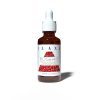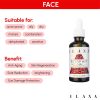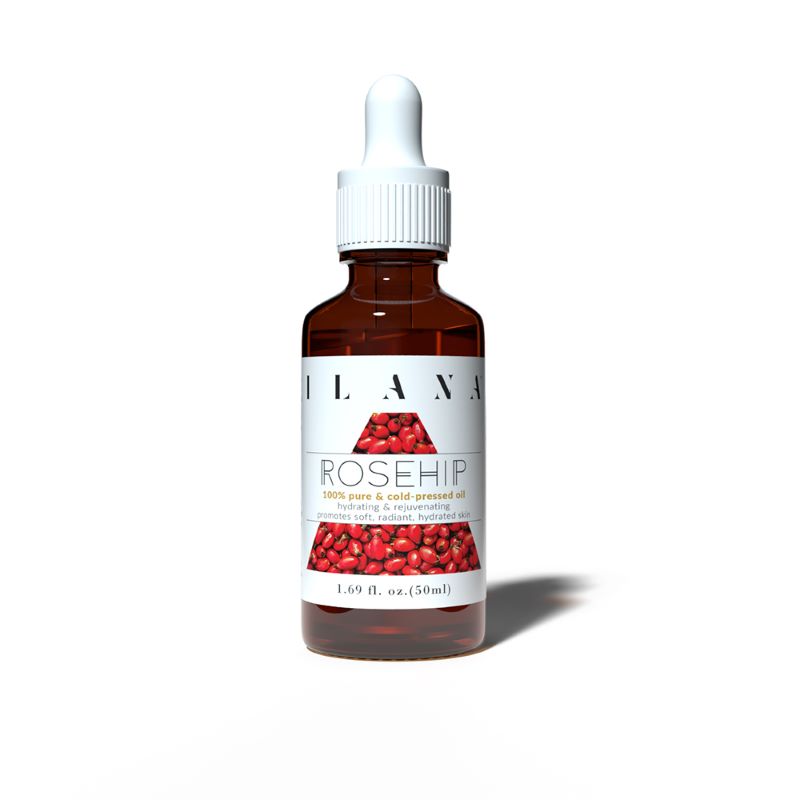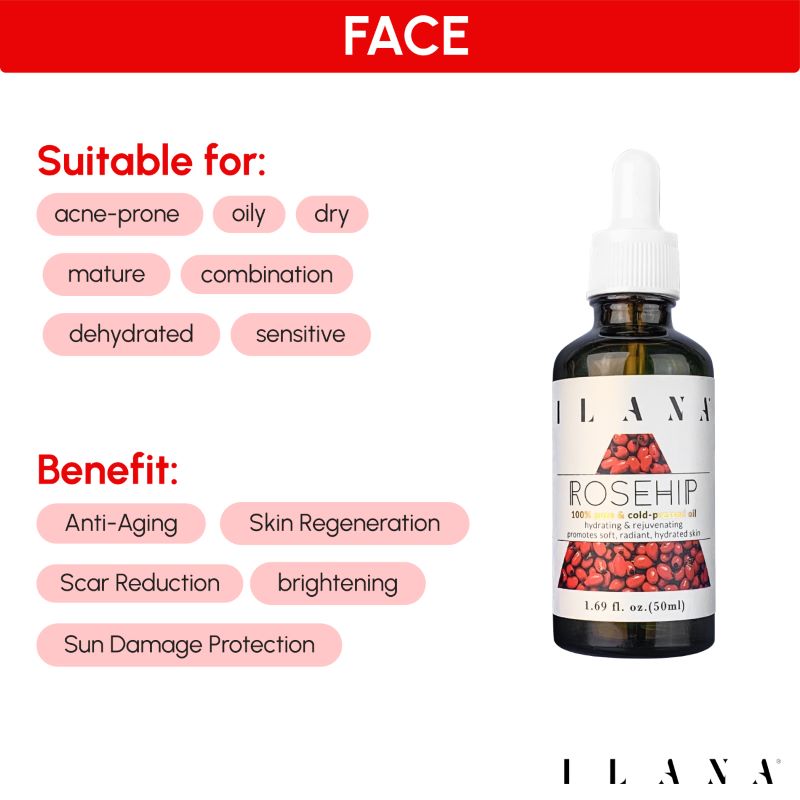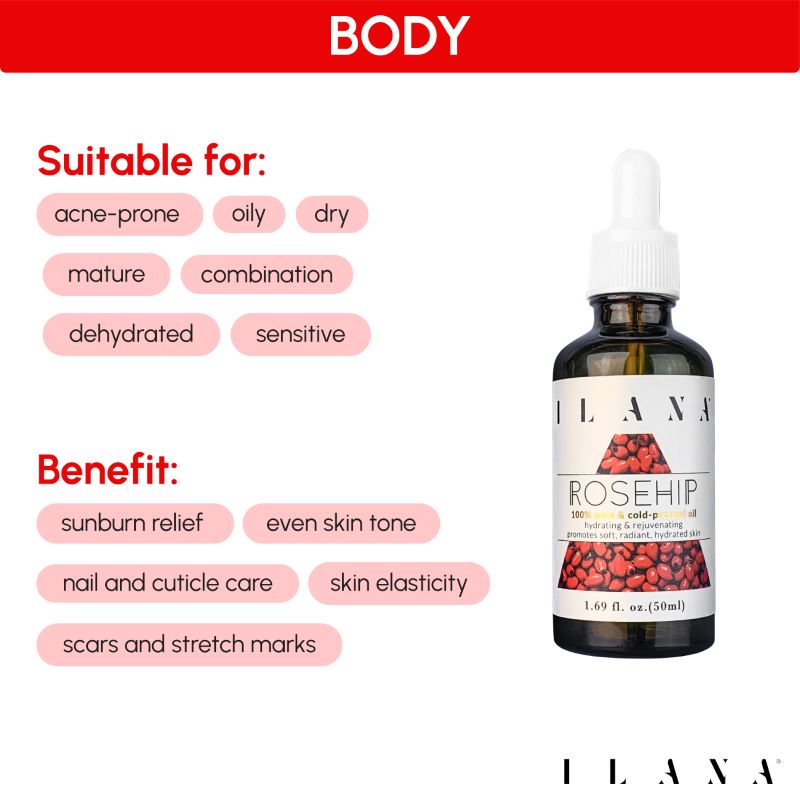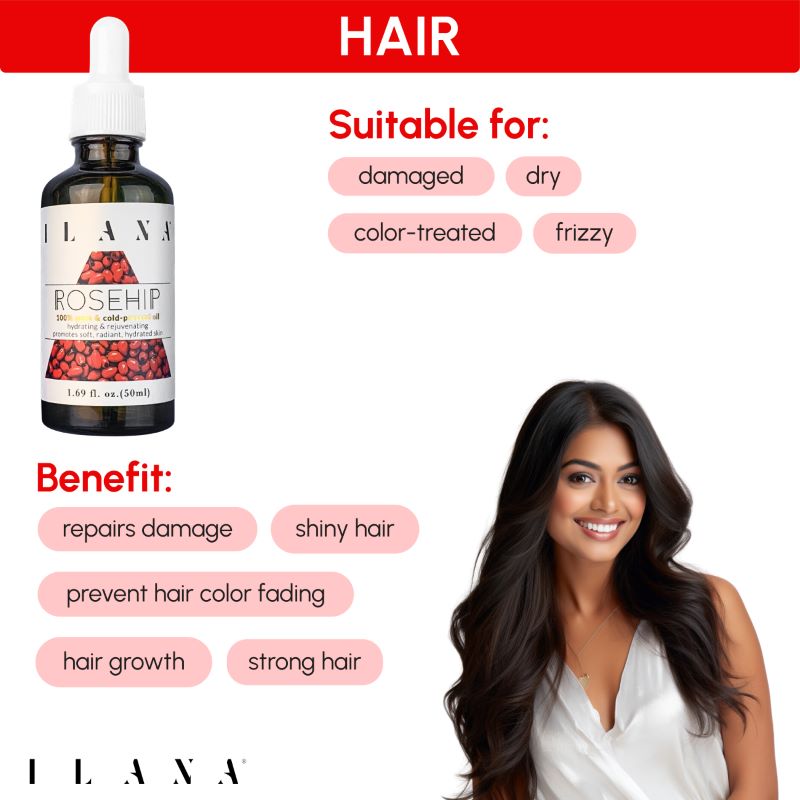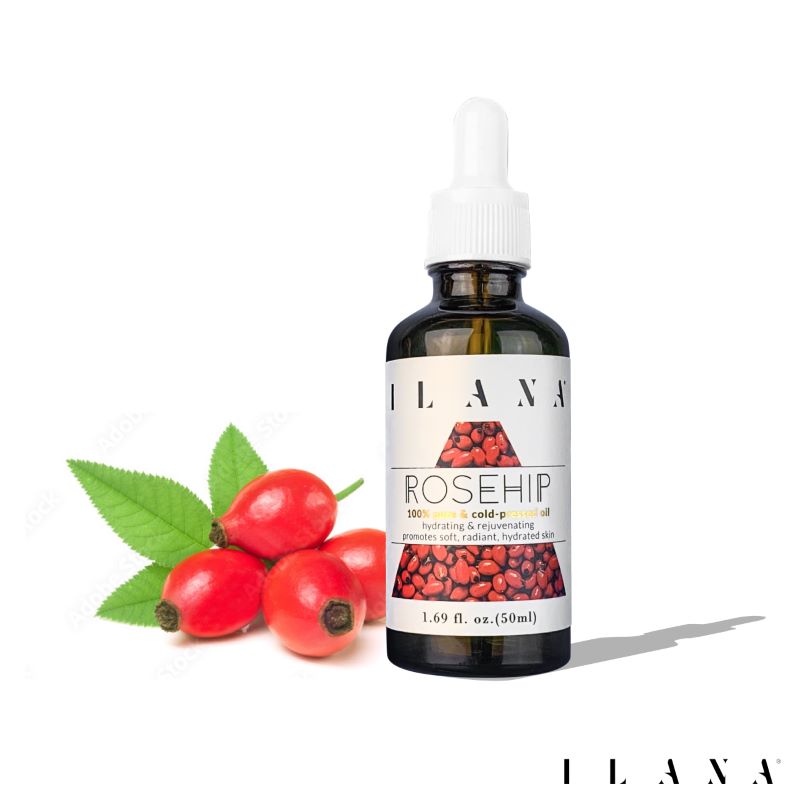- What is rosehip oil, and where does it come from?
Answer: Rosehip oil is a natural skincare product derived from the seeds of wild rose bushes, particularly the Rosa canina variety.
- Is rosehip oil suitable for all skin types?
Answer: Rosehip oil is generally suitable for most skin types, including dry, sensitive, and combination skin. However, it’s a good idea to perform a patch test to ensure it suits your skin.
- How does rosehip oil benefit the skin?
Answer: Rosehip oil provides hydration, promotes collagen production, reduces fine lines, brightens skin, and helps with scar and hyperpigmentation reduction.
- Can rosehip oil help with acne-prone skin?
Answer: Yes, rosehip oil is non-comedogenic and can be suitable for acne-prone skin. Its anti-inflammatory properties can help soothe irritated skin, but it’s essential to monitor how your skin reacts.
- How should I incorporate rosehip oil into my skincare routine?
Answer: You can use it as a cleanser, moisturizer, spot treatment, or mixed with your regular moisturizer or night cream. Apply a few drops to clean, damp skin and massage gently.
- Can rosehip oil be used during the day?
Answer: Yes, you can use rosehip oil during the day. However, it’s a good idea to follow it with sunscreen, as some people may be more sensitive to sunlight when using certain skincare products.
- How long does it take to see results when using rosehip oil for skin concerns like scars or wrinkles?
Answer: Results can vary, but with consistent use, you may start to see improvements in a few weeks to a few months, depending on the severity of the concern.
- Are there any side effects or precautions when using rosehip oil?
Answer: While rosehip oil is generally safe, some people may experience allergies or skin reactions. Always do a patch test and discontinue use if irritation occurs. Avoid contact with the eyes.
- Can I use rosehip oil on my body, and what are the benefits?
Answer: Yes, rosehip oil can be used on the body to moisturize, reduce the appearance of stretch marks and scars, soothe irritated skin, and promote overall skin health.
- Can pregnant women use rosehip oil?
Answer: Pregnant women should consult their healthcare provider before using any skincare product, including rosehip oil, to ensure it’s safe for their specific situation.
- Can I use rosehip oil on all hair types?
Answer: Yes, rosehip oil is generally suitable for all hair types, but the amount used may vary depending on whether your hair is oily, dry, or normal.
- How often should I use rosehip oil on my hair?
Answer: You can use rosehip oil on your hair as often as needed. Some people use it as a weekly treatment, while others use it more or less frequently based on their hair’s condition.
- Can rosehip oil help with hair growth?
Answer: Rosehip oil can promote hair growth by improving scalp health and providing essential nutrients to the hair follicles. Consistent use may lead to stronger and potentially faster-growing hair.
- Will rosehip oil make my hair greasy or weigh it down?
Answer: Rosehip oil is a lightweight oil, so when used in moderation and applied to the lengths and ends of the hair, it should not make your hair greasy. However, avoid applying too much to the scalp if you have oily hair.
- How do I use rosehip oil as a pre-shampoo treatment?
Answer: Apply a few drops of rosehip oil to your dry or damp hair, focusing on the ends and damaged areas. Leave it on for at least 30 minutes, then shampoo and condition your hair as usual.
- Can I leave rosehip oil in my hair overnight?
Answer: Yes, you can leave rosehip oil in your hair overnight for a deep conditioning treatment. Just be sure to protect your pillowcase with a towel or old t-shirt.
- Does rosehip oil help with dandruff?
Answer: Some people find that rosehip oil can help soothe a dry, itchy scalp and reduce dandruff when massaged into the scalp regularly.
- Can I mix rosehip oil with other hair oils or ingredients?
Answer: Yes, you can mix rosehip oil with other hair-friendly oils like coconut, jojoba, or argan oil for a customized hair treatment. You can also add a few drops to your conditioner or hair mask.
- Will rosehip oil change my hair color if I have dyed or colored hair?
Answer: Rosehip oil is generally color-safe and shouldn’t significantly affect hair color. It can actually help lock in color and prevent fading.
- Can I use rosehip oil on chemically treated or heat-damaged hair?
Answer: Yes, rosehip oil can be beneficial for repairing and nourishing chemically treated or heat-damaged hair, helping to restore its health and shine.
- Can pregnant or breastfeeding individuals use rosehip oil on their hair?
Answer: Rosehip oil is generally safe for external use during pregnancy and breastfeeding. However, if you have any concerns, it’s advisable to consult with a healthcare professional.
